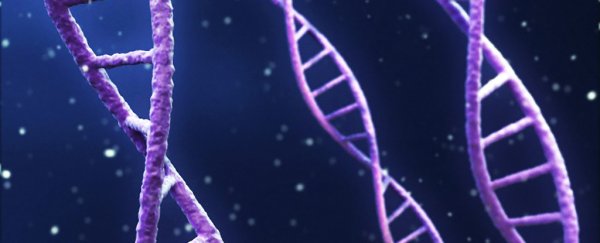Scientists have identified genetic links between a set of psychological factors known as 'the big five' personality traits - extraversion, neuroticism, agreeableness, conscientiousness, and openness to experience - and say they could also influence risk factors for certain psychiatric disorders.
While it has already been established that personality is partly linked to genetics, recent genome-wide association studies like this will allow researchers to take a closer look at which parts of our DNA code affect certain aspects of our character.
"Although personality traits are heritable, it has been difficult to characterise genetic variants associated with personality until recent, large-scale GWAS," explains lead researcher Chi-Hua Chen from the University of California, San Diego.
Chen and his team analysed genetic data, including around 60,000 genetic samples collected by private firm 23andMe and some 80,000 samples provided by the Genetics of Personality Consortium.
With so much DNA data to work with, they were able to look for correlations between specific genetic features, personality traits, and psychiatric disorders.
We know that parts of our personality, such as intelligence, are down to a combination of the genes we were born with - our inherited DNA - and our life experiences, such as how good our teachers are when we're growing up.
But scientists aren't certain about how these two factors balance out, which makes large-scale studies like this very useful.
The researchers found links between certain genes and certain traits. For instance, the genes WSCD2 and PCDH15 are connected to extraversion, while the gene L3MBTL2 and the chromosome 8p23.1 are tied to neuroticism.
They also found that genes related to neuroticism and openness to experience were clustered together in the same regions as genes linked to certain psychiatric disorders.
Other genetic correlations showed connections between extraversion and attention deficit/hyperactivity disorder ( ADHD); between openness and schizophrenia and bipolar disorder; and between neuroticism and depression and anxiety.
In other words, the same parts of DNA coding that help define our personalities could also affect our likelihood of developing mental health problems.
That's not to say the genes we're born with fully define our personality and make psychiatric problems inevitable, but they do seem to have an influence - and could be closely linked to each other, based on these findings.
On the other hand, the research found no genetic overlap between mental illnesses and agreeableness (being cooperative and compassionate), or conscientiousness (being responsible and self-disciplined).
It's still early days for the research, and the study has only shown a correlation, not a causative link between personality traits and certain psychological disorders, but the team says with more investigation, we might be able to find a way to predict and treat these disorders in the future.
"Our study is in an early stage for genetic research in personality, and many more genetic variants associated with personality traits are to be discovered," says Chen.
"We found genetic correlations between personality traits and psychiatric disorders, but specific variants underlying the correlations are unknown."
The work has been published in Nature Genetics.
